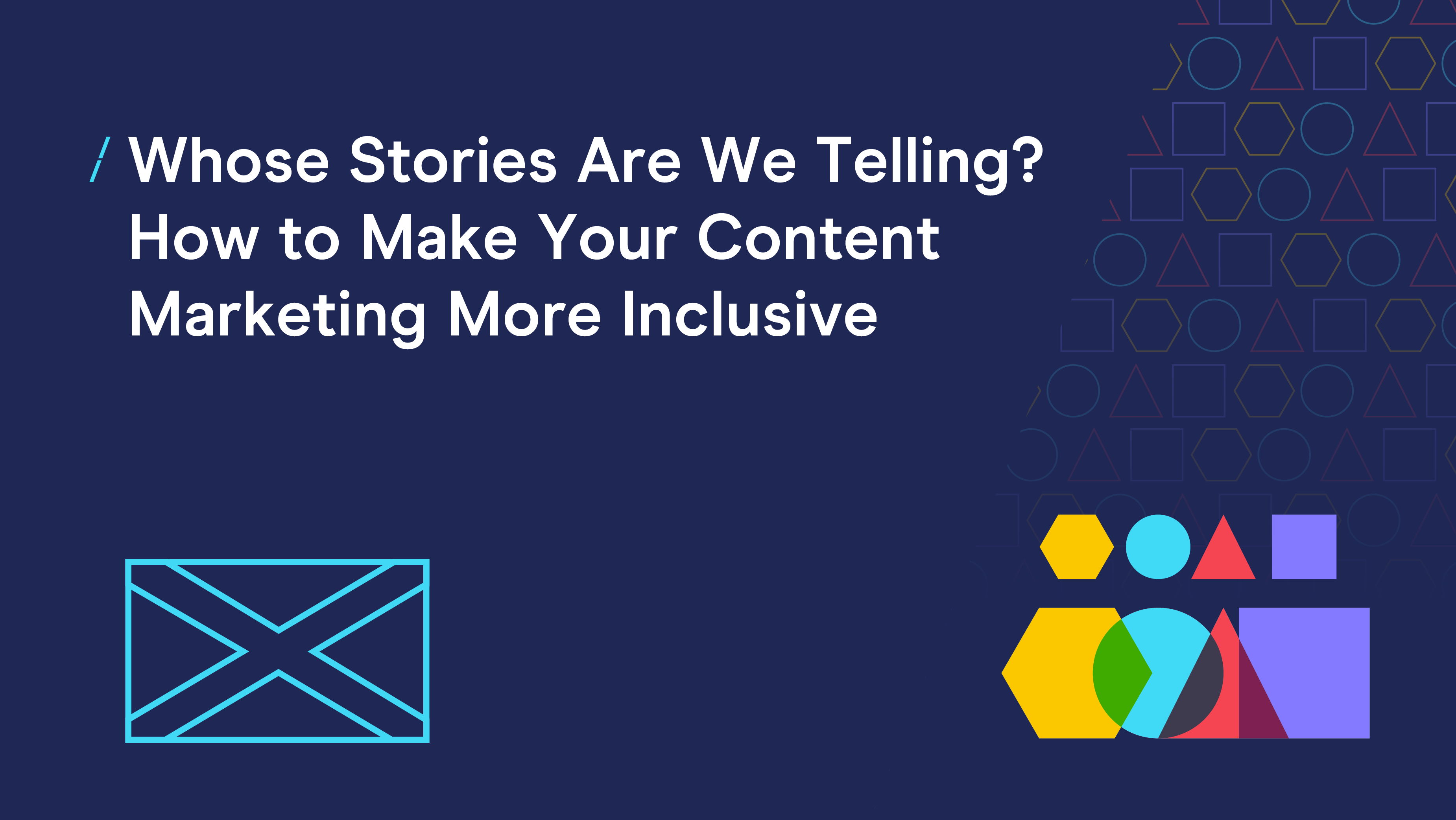
How do we decide which stories to share, and how to communicate them? As part of DMA Scotland's regional content, guest contributor Louise Shanahan, Health Copywriter, The Copy Prescription, gives her insights on writing more inclusive communications. Discover what to consider before hitting publish:
Content marketing is about telling – and selling – stories.
If we want our readers to care enough to do something, be that buying our product or buying into our way of thinking, we need them to feel emotionally invested in the outcome. Stories help us build that connection.
We use stories to paint a picture of what things could be like, to nudge our readers towards a belief in the possibility of transformation. And if we do our job well, we’ll write something that resonates with the reader in a way that moves them towards action.
Through stories, we can turn a tiny nugget of an idea into an action taken by someone else, with ripples extending to who-knows-where.
Isn’t that powerful?
And it’s that power that requires us to pay attention to the stories we tell.
Deciding what stories to tell
Earlier this year, as our newsfeeds were flooded with reports of what’s becoming one of the biggest civil rights movements in history, many of us wondered what stories we should be telling.
Because when we read about the murders of George Floyd and Breonna Taylor and many others, we feel the urgency. We want to be part of the change. For those of us with the privilege to avoid thinking about racism most of the time, it’s through stories like these that we finally get it. We’re emotionally invested in the possibility of change. And we see that we need to do better.
No doubt you overheard a few conversations where brands were debating whether or not to post content relating to racial justice:
“Is ‘politics’ on brand?”
“We don’t normally talk about ‘this stuff’.”
“Shouldn’t we stay ‘neutral’?”
Maybe you’ve had similar discussions with your team. But there is no neutral. Black lives matter. No debate.
But still, it felt like new territory for many brands, who weren’t sure what to say in response.
Personally, I’d be pretty disappointed to hear that brands and organisations I like are neutral on the subject of racial justice – especially when so many were rushing to jump in our inboxes and say they were ‘here for us’ in the fight against coronavirus.
There isn’t always a right answer. But isn’t it better to be seen as jumping on the activism bandwagon than as an organisation that doesn’t care? Better to risk unfollows and unsubscribes, than appear indifferent to the wellbeing of people in your community?
Some thoughts about writing more inclusive content
As people who write copy, we’ve got an added responsibility – or opportunity – to think about the stories we tell, and how we tell them.
Let’s get practical. If you or your organisation is considering how to create more inclusive content but not quite sure what to say, here are a few thoughts and questions that might be worth considering before pressing publish:
- Whose story are we telling?
- Whose voice are we amplifying?
- What value does this message have for the people who will read it?
- Who benefits from what we’re about to write or post?
- Are we saying this to help drive forward change, or to be seen as doing the right thing?
- How can we speak up and out against racism (or any other form of discrimination or injustice), without centring our own experiences?
- If we are hesitating to speak up, why is that?
- What do we want our organisation to be known for? Can our brand values help us figure out what to say?
And most importantly – are we walking the walk as well as talking the talk?
Inclusive content isn’t just about choosing your stock photos carefully and avoiding culturally insensitive words like ‘tribe’ and ‘blacklist’. We need to root out our blind spots by educating ourselves, listening to and hiring and supporting people who aren’t like us, and welcoming feedback without getting defensive.
We should aspire to write copy that reflects the world around us – and that helps build the world we want to see. Stories have the power to change lives and help us imagine a new reality.
Our words matter.
Louise Shanahan
Health Copywriter
The Copy Prescription
A version of this article was originally included in The Copy Prescription newsletter, and has been featured on ProCopywriters.co.uk. We do our best to make sure our content is respectful and inclusive, but we're always open to feedback. Please contact us if anything here is incorrect or could be worded more sensitively.
Please login to comment.
Comments